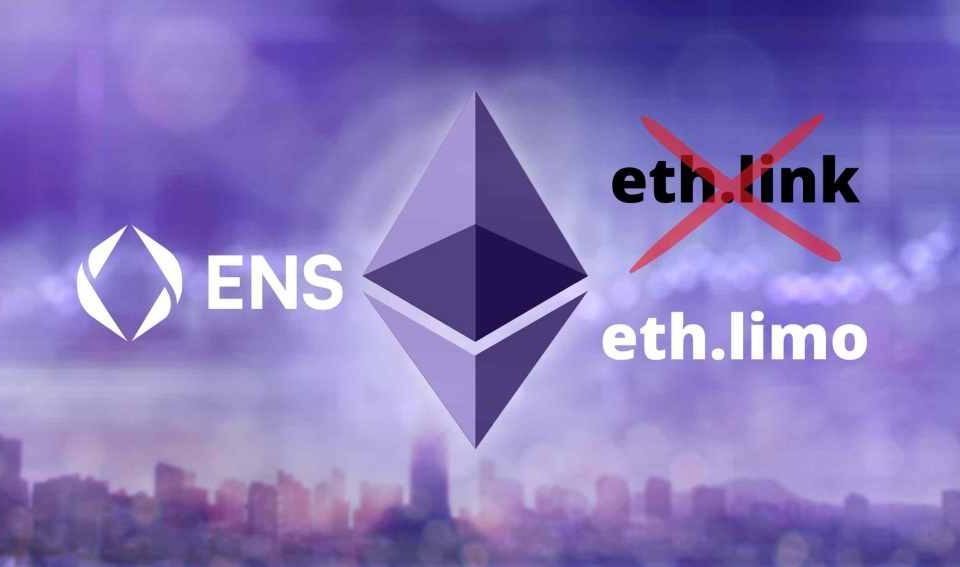Eth.Link, a web3 domain name service that serves the .eth community, goes offline because the developer who can renew the domain is in prison

Eth.link, a web3 domain name service that provides a centralized way to access information in the ENS from DNS, has expired. The domain expired on July 26 and will be up for sale at the GoDaddy auction on September 5, according to GoDaddy.
Eth.link service is currently offline because the domain owner and former Ethereum developer, Virgil Griffith, is currently serving a 63-month sentence. Griffith is the only person who has access to renew the domain.
Griffith was arrested in November 2019 for helping North Koreans to use cryptocurrencies to circumvent the sanctions after giving a cryptocurrency and blockchain presentation at a 2019 North Korean conference. He later pleaded guilty in 2021.
GoDaddy had previously allowed another person to renew the domain on behalf of Griffith, but the company later reversed its decision, and now says it intends to allow the domain to expire on September 5. Below is a statement from GoDaddy
“GoDaddy is sharing the following update in acknowledgment of interest among certain parties in the domain eth.link. The registration for this domain expired on July 26, 2022. The domain is currently progressing through the standard expiry lifecycle and is expected to be returned to the registry on Sept. 5, 2022, absent a renewal by the current registrant.”
The ENS DAO, which uses the Eth.link service, also issued a series of tweets urging people to switch to a different service, given the risk that the domain could be snapped up. In a tweet, ENS DAO said:
“We’re aware that http://eth.link is down. Unfortunately, the name is owned by Virgil Griffith, who is currently unavailable, and despite help from his lawyer, we’ve been unable to obtain access to his registrar account to renew the name so far.”
We're aware that https://t.co/C7Kj40AtGU is down. Unfortunately, the name is owned by Virgil Griffith, who is currently unavailable, and despite help from his lawyer, we've been unable to obtain access to his registrar account to renew the name so far.
— ensdao.eth (@ENS_DAO) August 26, 2022
“If the name expires and is acquired by someone with ill intent, the damage they could do via phishing is substantial – so please update your links and alert your users of the issue immediately,” ENS DAO added.
The Ethereum Name Service (ENS) is a distributed, open, and extensible naming system based on the Ethereum blockchain. Top-level domains, like ‘.eth’ and ‘.test’ are owned by smart contracts called registrars, which specify rules governing the allocation of their subdomains. Just like the DNS, ENS operates on a system of dot-separated hierarchical names called domains, with the owner of a domain having full control over subdomains.
Ethereum users with usernames ending in .eth use ENS address. The only downside is that .eth domains are not a functional top-level domain that can be accessed via regular browsers like Google Chrome or Microsoft Edge. As such, many services relied on eth.link to surface these DNS records to other services.
Behind the scene, eth.link domain services uses a wildcard DNS record (*.eth.link) to capture requests for all ENS domains. In other words, eth.link leverages .link to for resolution to the top level domains to obtain information about a given .eth domain.
Behind the scene, eth.link domain services uses a wildcard DNS record (*.eth.link) to capture requests for all ENS domains. In other words, eth.link leverages the resolution of .link domains to obtain information about a given .eth domain. For example, a DNS A record request for mywalletaddress.eth.link would trigger the wildcarded *.eth.link record and return the A record in ENS for mywalletaddress.eth.
The ENS DAO is a decentralized autonomous organization (DAO) that governs the Ethereum Name Service protocol. Users have bought .eth names as a way to own their own domains. ENS names can then be tied to your wallet address, making it easier for users to send and receive crypto (instead of having to type out a long, complex Ethereum address).

